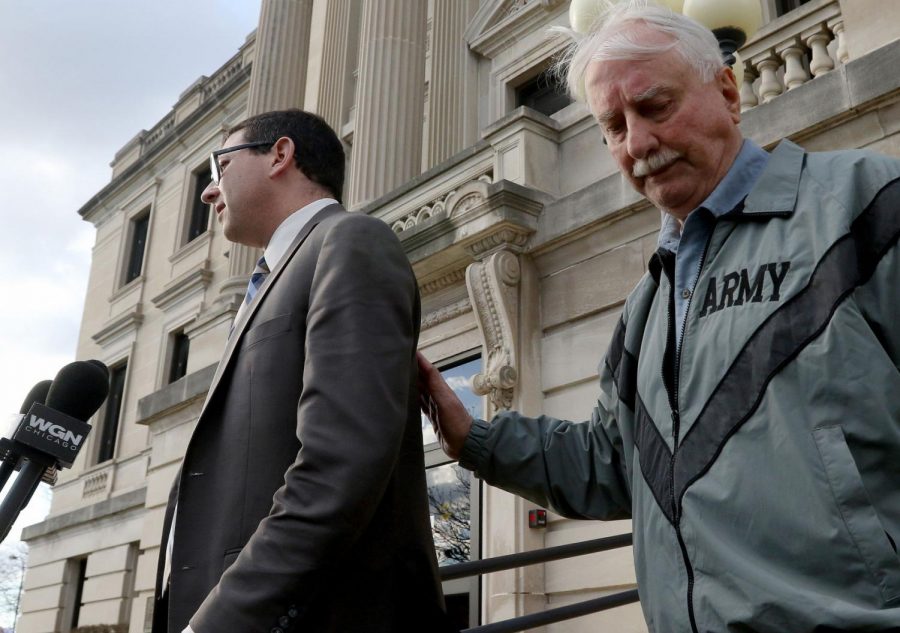Judge to rule on certificate of innocence
April 10, 2017
SYCAMORE — DeKalb County Judge William Brady will make his ruling on Jack McCullough’s petition for a certificate of innocence Wednesday at the DeKalb County Courthouse, 133 W. State St.
McCullough was prosecuted for the 1957 murder of 7-year-old Maria Ridulph, of Sycamore, in 2012; however, he was released from prison when Brady voided the 2012 ruling on the basis of a lack of evidence this past April.
If McCullough’s petition is granted, he will be eligible to receive up to $85,350 and cannot be tried again unless new evidence comes to light, according to Illinois State Compiled Statute 505 chapter 37, section 8c.
Brady granted both sides permission to make closing arguments before the four-hour case concluded.
In a crowded Sycamore courtroom, McCullough, 77, gave testimony with the hope of gaining legal acknowledgment of his innocence.
McCullough said he is requesting the certificate of innocence because he’s not guilty and wants his name back.
“My name has been in all the papers, coast to coast,” McCullough said. “I have been put forward as a monster, and people still believe I’m a monster.”
DeKalb State Attorney Rick Amato argued against McCullough’s request Thursday because he violated the fourth section of the statute, which stipulates a request may be denied if “the petitioner did not by his or her own conduct voluntarily cause or bring about his or her conviction.”
Amato said the conversations McCullough had with Washington investigators led to his 2012 conviction.
Russell Ainsworth, McCullough’s attorney who works with the Chicago-based Exoneration Project, introduced two witnesses to the trial.
Jan Swafford, who spoke via live stream from Florida, testified that she and McCullough went on a date the night Ridulph disappeared Dec. 3, 1957. Her testimony countered a 1957 report that McCullough never showed up to the date.
Swafford said she came to DeKalb in 2012 to give testimony for the prosecution but was never contacted to speak during the trial.
In 1957, Kathy Sigman Chapman, who was 8 years old at the time, told investigators she and Ridulph were playing when a man who called himself “Johnny” approached them and offered them piggyback rides.
Nancy Steblay, a memory expert who has trained police in best practices, testified that she was not “confident” in Chapman’s 2011 identification of McCullough.
Steblay said she viewed the FBI and police reports and found inconsistencies in Chapman’s description of “Johnny” just days after Ridulph’s disappearance. Steblay also said she thinks 52 years is too long for someone to recall a memory that may have been compromised by viewing many photos during the investigations.
Steblay said investigators are most concerned with the original memory during the identification process.
“Every time [Chapman] tries to remember that cognitive memory at that point is a product of that original memory, plus everything she’s learned and heard and thought about since,” Steblay said.
Brady will read his ruling into the record 1 p.m. Wednesday at the DeKalb County Courthouse, 133 W. State St.







